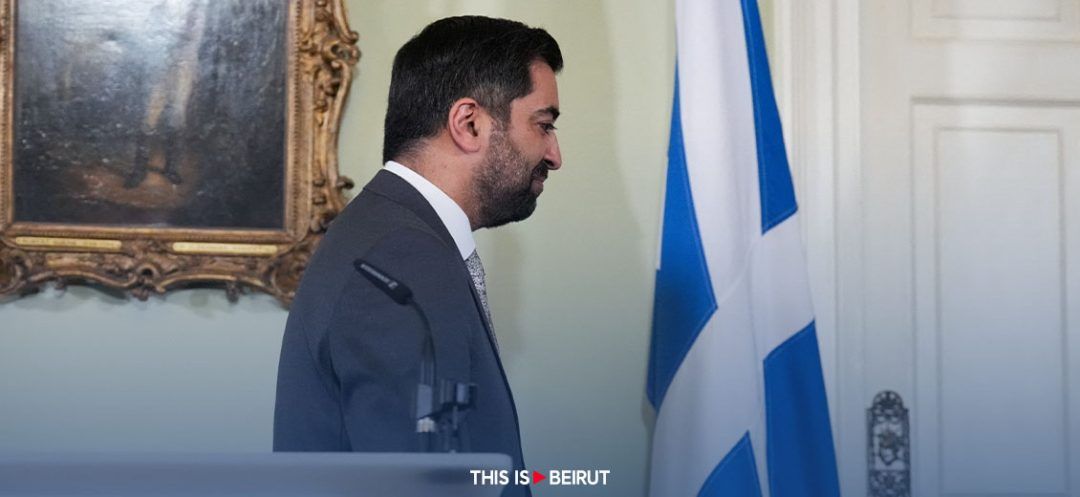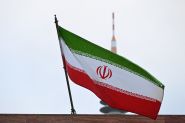- Home
- Middle East
- Scotland: Humza Yousaf's Resignation, a Blow to Independence Supporters?

In the heart of the Scottish political turmoil, a resounding announcement shook the circles of power: Scottish First Minister Humza Yousaf announced his resignation on Monday morning. This decision comes after a series of tumultuous political developments that rocked the Scottish National Party (SNP), of which Yousaf is the leader.
It all started with the breakup of the coalition between the SNP and the Scottish Green Party, following the withdrawal from the Bute House agreements last week.
These agreements, negotiated during the tenure of Nicola Sturgeon, Yousaf's predecessor, aimed to provide the framework for a parliamentary coalition between the SNP and the Greens in the Scottish Parliament so they could govern with an absolute majority. However, Humza Yousaf announced that he would be unable to fulfill the agreed-upon commitments — specifically, reducing greenhouse gas emissions by 75% by 2030 — leading to a unilateral withdrawal of his party from the Bute House agreements and the parliamentary coalition. This decision immediately triggered a vote of no confidence, unanimously supported by opposition parties and the Greens.
In this tumultuous context, Humza Yousaf chose to resign, committing to manage affairs until his successor is appointed within 28 days. During this transitional phase, the resignation will be officially transmitted to King Charles III, thereby ending the governance of Scotland's first Muslim leader, which lasted only a year.
How Did We Get Here?
A report published on March 20 by the Climate Change Committee (an independent British body responsible for monitoring the pace of emissions reduction in the UK) revealed that "experts are no longer convinced of the feasibility of the targets set by Edinburgh in the Bute House agreements." They particularly criticize "a lack of credible strategy for decarbonizing Scotland."
This announcement is a humiliation for the Scottish government, which boasted of leading the world's most ambitious country in this regard. The Executive had little choice, trapped by the damning findings of the report.
This adds another layer to the turmoil facing the Scottish National Party. Beset by Nicola Sturgeon's resignation in March 2023 and a trial accusing her of embezzlement, the SNP would undoubtedly have preferred, despite its political missteps, to avoid the resignation of its current leader, fearing it would lead to even greater chaos and instability.
According to polls, these setbacks could favor the resurgence of the Labor Party to a position of dominance that it held in Scotland until the mid-2000s. Indeed, for the first time since 2014, Labor would surpass the SNP by 2 points in the percentages, according to the YouGov institute.
This wear and tear, ignored by the Scottish nationalists in power since 2007, heralds their imminent downfall, already preceded by the sharp decline in pro-independence sentiment in public opinion. In other words, as succinctly summarized by the British newspaper The Times, "in Scotland, it's the end of an era." More worrying for this party, polls on a second referendum now show that a majority of Scots oppose it. The latest YouGov study reveals that 54% of respondents would vote against Scottish independence, and 46% for.
The SNP's resounding failure lies not primarily in Humza Yousaf's resignation, but rather in the growing feeling that the Scottish independence dream no longer appeals.
What Happens Now?
The SNP now faces its second major leadership crisis in less than 18 months, after two decades of stability and smooth transitions. According to the provisions of the SNP constitution, any contender for party leadership must obtain the votes of at least 100 members.
According to information obtained from an informed source who requested anonymity, the party will favor an experienced and unifying candidate, capable of reuniting its ranks and leading it to general elections this year and the Scottish Parliament elections in 2026. John Swinney, a respected figure within the party, quickly emerged as the favored potential successor to Yousaf.
Swinney, a former deputy to Nicola Sturgeon until his resignation in March 2023, confirmed that he is seriously considering running for leadership after being strongly encouraged by key figures within the SNP. They hope to also persuade Kate Forbes, former Finance Secretary and another favored candidate, to step aside in favor of Swinney, to avoid exacerbating divisions that could tarnish the SNP's popularity so close to a general election. If Swinney does not run, Forbes will run for party leadership.
From the same source, it is indicated that Swinney had been encouraged to remain as party leader at least until the Scottish parliamentary elections, scheduled for May 2026.
The youngest leader at the helm of the SNP, Humza Yousaf, who was praised for his communication skills, capable of uniting the party, thus failed to turn the page on Sturgeon's tenure. While Humza Yousaf's tenure did not succeed in slowing the decline of Scottish independence sentiment, it highlighted the challenges facing the SNP. However, it also symbolized openness and cultural diversity in the UK. As the first Muslim leader of a Western European country, Yousaf embodies Britain's social and political evolution, as well as the significant contribution of immigrants and their descendants to society. His personal journey, as the son of Pakistani immigrants, illustrates the richness and value of cultural diversity in building a modern and inclusive nation.
Is Humza Yousaf's forced resignation, along with the SNP's growing unpopularity, not a harbinger of an electoral defeat against Labor in the upcoming elections? Is it not also evidence that Scottish independence is nothing more than a myth that no longer appeals, and that Scotland's place remains firmly within the United Kingdom?
Read more




Comments